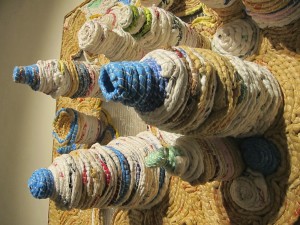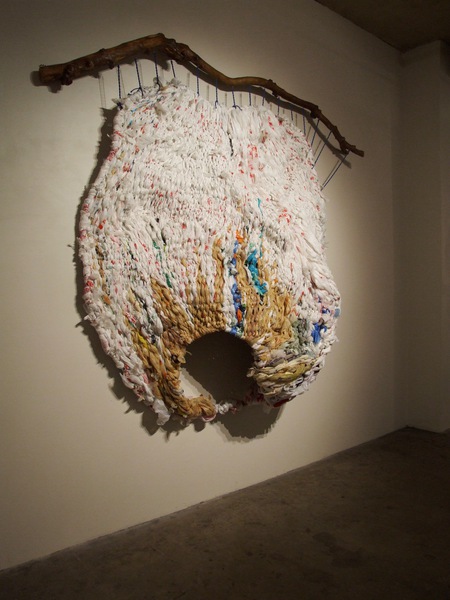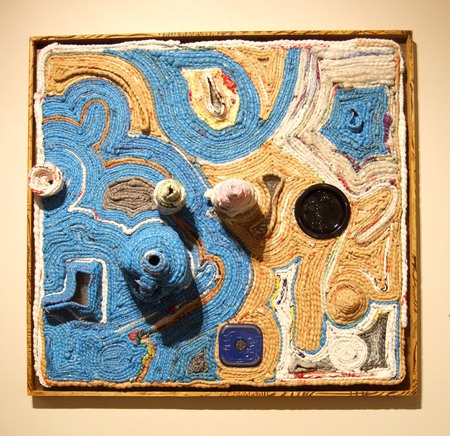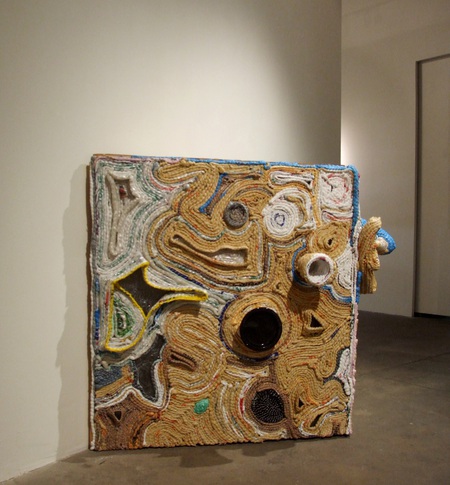
Ifeoma Ugonnwa Anyaeji is a Nigerian-based artist, born in 1981. While art was a great passion it wasn’t her first choice of ‘profession’ as it didn’t seem a sensible choice. Studying art at undergraduate level was still not a guarantee that she would end up becoming a full time art practitioner, because she already had a degree in another field. However, growing up in a society fueled by the dualities of excess and repression; a country in the grip of national schizophrenia from which it has seldom emerged and where art was yet to be accepted as a “decent” career, she decided to take art as a full career and explore her boundaries, as a female artist, beyond her undergraduate training.
Artist Statement
Weave, 2012.
Water, 2011.
Reception Table, 2011.
My works are about up-cycling and material reuse, in review of our cultural attitude to the concept of product newness, value and expiration date, as well as social responsibility to the environment. In creating these works I reflect on the cultural prescription of value and value systems, particularly from my home country Nigeria. My concept of material reuse through the transformation of an object’s physical state, is to echo the environmental implication of accumulation and the extensiveness of a politicized archeology of modernity’s consumptive system. The discarded plastic bags and bottles, two common environmental pollutants, are the main media with which I visually express the narrative of a domestic object’s possible transition from the discarded to the aesthetic or functional. This I conceive by creating a complexity of sculptural forms that allow for multiple interpretations of the functionality of an object after it has been consumed. I envisage a multiplicity of uses while retaining the physical state of the discarded object. As an artist I am constantly intrigued by craft processes. Therefore, my work incorporates the processes of a communal hair plaiting technique from my home country, Nigeria, called Threading. Using this hair craft technique, otherwise termed “old fashioned”, I am able to extend the functionality of these discarded plastic bags and bottles beyond covers and packaging. I beautifully transmogrify their physical appearance by braiding the bags into Plasto-yarns, using these to create objects that reference architectural forms and domestic furniture. My repetitive process of Threading and choice of medium are
reminiscent of the domestic lifestyle and accumulative nature of the average consumer. The works, which sometimes are displayed as installations, are conceptual and appear organic; presenting non-biodegradable medium, like plastic (Polyethylene) bags and bottles, as otherwise. (website and courtesy Skoto Gallery Amsterdam)



